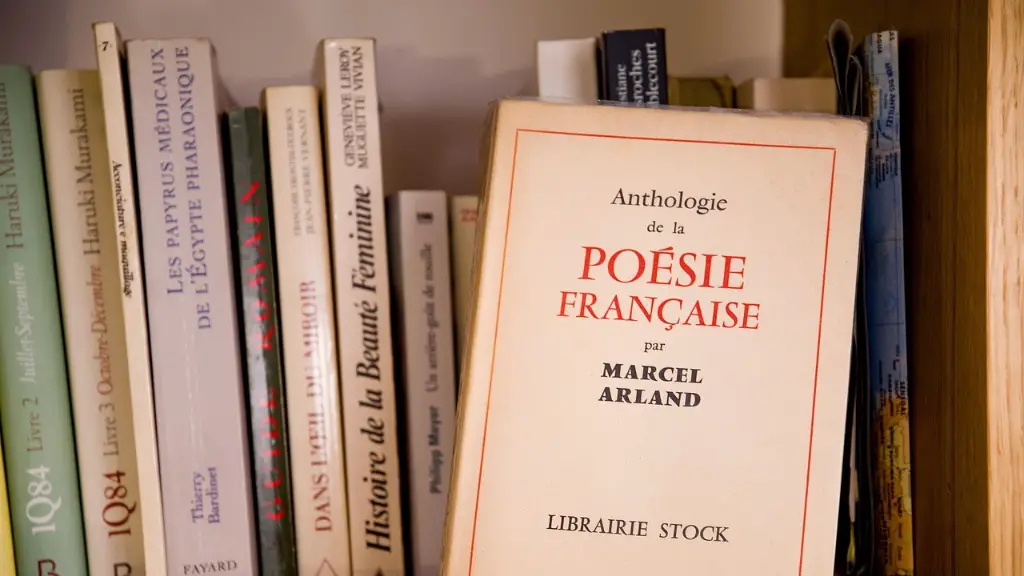Robert Frost’s poems are widely celebrated for their insight into the beauty of the natural world and the complexity of the human condition. He is known for his use of simple language that conveys deep emotions, often using metaphor and symbol to bring his ideas alive. Themes that he touched on include loss, love, life, death, fear and faith, but he also delved into more specific topics such as work, family, and nature.
One of the most memorable aspects of Frost’s poems are the vivid imagery and figure of speech he used to convey his message. He often employed metaphor, personification and symbolism in order to draw a vivid picture in the readers’ minds. This is particularly evident in the poem ‘The Road Not Taken’, which uses the path of a traveller as a metaphor for the choices we make in life. Frost was able to talk about complex topics by using simple everyday objects and experiences to illustrate his point.
Another common theme in Frost’s work is that of nature. He was inspired by the landscapes and nature of New England, making them a recurring motif in many of his works. Frost was able to capture the beauty of nature in his poems while also exploring deeper themes, such as the interconnectedness between people and the environment. He was able to do this without being overly sentimental or simply describing the physical beauty of the land.
Love is another recurring theme in Frost’s work. He often wrote about the thrills and fears of love, such as its potential for joy and also its potential for tragedy. In ‘Fire and Ice’, he uses two opposing images to convey the complexity of intense emotion. Similarly, in ‘Stopping by Woods on a Snowy Evening’, Frost uses the figure of a horse to symbolise an emotional journey.
Finally, Frost often wrote about death. He was able to tackle this subject directly, but also indirectly through symbols and imagery that evoke the idea of mortality. In ‘Nothing Gold Can Stay’, Frost explores the transient nature of life, and its fleeting beauty. Here, he uses the symbol of a gate, which is a metaphor for death and the end of life.
Themes of Loss
Robert Frost was also well-known for exploring the themes of loss and regret. He was able to communicate the sadness and sense of emptiness that follows when something or someone precious is taken away, as well as the difficult emotions that can arise in its aftermath. ‘Out, Out-’ is a powerful poem which touches on the fragility of life, and the pain and sadness caused when someone is taken suddenly. Additionally, his poem ‘Acquainted With the Night’ captures the feeling of being lost and alone in the darkness.
The Poet as Philosopher
Frost also had a philosophical side, as can be seen in his poem ‘Mending Wall’. He explored the idea of boundaries, both physical and emotional, and the impact that they can have on relationships. Here, Frost delivers a timeless truth about the human condition, that relationships can be built and mended with effort from both sides, and that walls should not be built without reason.
The Power of Words
Finally, Frost often explored the power of words, particularly in ‘The Lockless Door’. Here, he expressed the idea that sometimes words can be like a door, and when we open it, we can find ourselves in a new and interesting place. Frost was able to communicate this idea about the impact of words in a simple yet powerful way, showing that sometimes we don’t need long, elaborate sentences to get our point across.
Influence on Later Writers
Robert Frost is one of the most influential and beloved poets of the twentieth century. He continues to be admired for his timeless poetry that managed to capture the beauty of nature, the human experience and the power of words. His work has inspired countless later writers, who have drawn on his themes and techniques, including Seamus Heaney, Sylvia Plath, and May Sarton. Influenced by Frost, these writers have explored complex topics with vivid imagery and emotion.
Comparisons with Other Poets
It is sometimes said that Frost had a unique ability to bring everyday experiences alive in his poems. This is something which is shared by other early twentieth-century poets, such as Carl Sandburg and Walt Whitman. However, there are also differences in their work. Sandburg and Whitman both used more explicit political and social commentary in their work, while Frost explored private, individual experiences. In doing so, he was able to express the timeless and universal nature of the human experience in a way that was accessible to all.
Style and Language
Frost is known for his simple yet elegant language which was able to capture complex emotions. He often wrote in plain language which he used to illustrate the everyday and the extraordinary. He was able to employ figure of speech and metaphor to evoke vivid imagery and convey difficult ideas, as with his use of the road and the woods in ‘The Road Not Taken’. He used symbolism to communicate ideas such as mortality, and simple words to communicate life’s greatest joys and sorrows.
Form and Structure
Frost’s poetry is often characterised by its use of traditional poetic forms, such as the sonnet and the ballad. While Frost employed these traditional forms, he also experimented with structure. His ‘Birches’ is a structured poem with three distinct stanzas, each demonstrating a unique rhyme pattern. Led by the image of a birch tree, this poem explores the ideas of imagination and reality in a playful yet thoughtful way.
Recurring Motifs
Frost’s poems are also frequently marked by his use of recurring motifs and symbols. Nature is a frequent theme, as mentioned previously, with Frost often evoking the beauty of New England. He often used the figure of a traveller to explore ideas of growth and change, and animals such as horses, owls, and birds often symbolised deeper emotions or themes. He also explored the idea of religion, often using biblical references.



